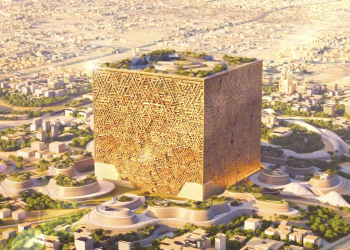
Saudi Arabias Yanbu and Dubais D3 achieve key smart city milestones
Bayanat, Etihad Etisalats data subsidiary in Saudi Arabia, has completed the initial implementation of a gigabit passive optical network (GPON) infrastructure at the Royal Commission of Yanbu, a key milestone towards the industrial citys transformation into a smart city.
Bayanat implemented the network on a build-operate-transfer (BOT) model. It then signed wholesale agreements with three firms in late November to supply the broadband services to the citys industrial and residential residents, according to a local media report.
GPON allows triple play services comprising data or internet access, voice or telephone services, and video or television on a single fibre.
The initial phase of the Yanbu smart city project comprised deploying GPON to 10,000 residential units and 32 small industrial plants and to all road intersections across the 185 square-kilometre complex. Phase 2, which starts in 2016, will see the roll of out the network infrastructure to the remaining 28,000 housing units located in the city.
In addition to the broadband network infrastructure, two data centres are currently being established in Yanbu. The data centres will host services catering to residents and businesses. It with also implement an advanced city management platfom that would include home automation, security, customer relationship management and other systems.
In Dubai, the implementation of smart technologies is in full swing at the Dubai Design District (D3). The 11 buildings to comprise the initial phase of the project were inherited from a development, which Dubai Properties began to construct in 2007 but later discontinued due to the 2008 crisis.
The US Cisco won the contract to provide advisory and consultancy-led services as well as a data virtualisation platform for D3 in March this year. The scope includes developing a ICT master plan for the development.
Smart parking, biometrics-based access and a multi-million dollar command and control centre were initially planned to be installed at D3, in line with its goal to become the worlds smartest spot, as mandated by Sheikh Mohammed bin Rashid al-Maktoum.
D3 was showcased in Ciscos recent Internet of Things World Forum, which took place in Dubai. The forum brought Ciscos outgoing and outspoken chief executive John Chambers to the emirate, who reiterated his conviction at a media briefing that companies need to reinvent themselves or get left behind in the digital world.
In terms of regulatory framework, Dubai recently announced the establishment of a Dubai Smart Office and the formation of the Board of the Dubai Smart City Office including the appointment of a director general and deputy director general. THe newly-formed office will develop overall policies and strategic plans, supervise the smart transformation process and approve joint initiatives, projects and services, according to the state-owned Emirates News Agency (Wam).
Other multi-billion dollar greenfield smart city projects across the GCC such as the Msheireb Downtown Doha and the King Abdullah Financial District (KAFD) have encountered major delays. The Msheireb project is in more advanced stage and will be opened in phases over the next few years, while the completion date for KAFD has not been specified.
You might also like...

Adnoc Offshore awards Upper Zakum contract
17 April 2024

Oman awards Batinah coastal road contract
17 April 2024

Oman appoints Al Khuwair Downtown project manager
17 April 2024
A MEED Subscription...
Subscribe or upgrade your current MEED.com package to support your strategic planning with the MENA region’s best source of business information. Proceed to our online shop below to find out more about the features in each package.





